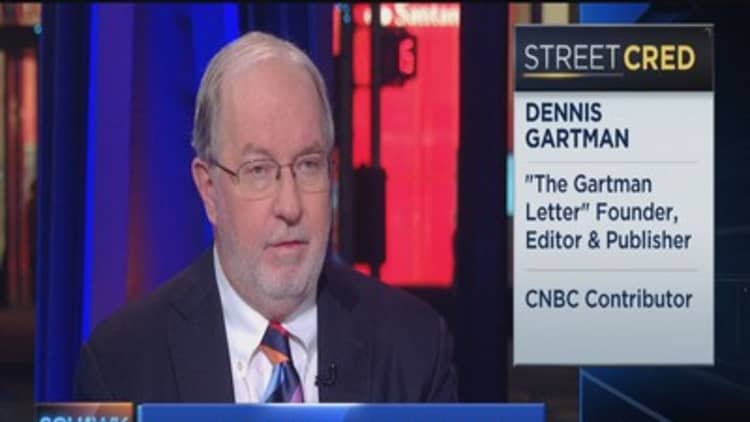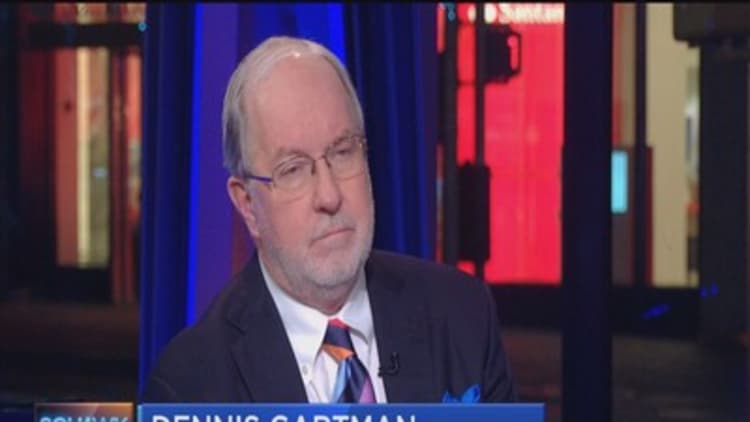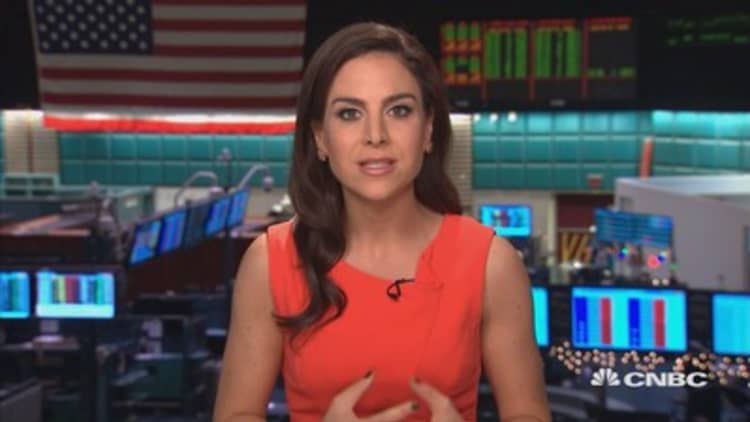


Market watchers scrutinizing fluctuations in volatile crude oil prices shouldn't expect upward moves to last, publisher Dennis Gartman said Thursday.
No meaningful reversal will occur so long as storage facilities continue to fill up and OPEC refuses to lower its production ceiling in order to support prices, he said.
"As long as crude is bidding for storage, as long as there's an abundance of crude — and there is an abundance of crude — as long as the Saudis continue to say we're going to defend our market share, any bounces that you get will be short term," The Gartman Letter editor and publisher told CNBC's "Squawk Box."
To support his thesis, Gartman pointed to the widening gap between the near-term price of oil, or the spot price, and the cost of contracts for future crude deliveries. The price of oil one year from now is nearly $9 higher than spot prices, setting up a situation known as contango.
However, contango has not yet reached levels that would incentivize putting more crude on ships and holding it for sales for 12 months, said Matt Smith, director of commodity research at ClipperData. Prices a year from now would need to be about $15 higher in order to prompt more offshore storage, he said Thursday.
At present, too much crude, both onshore and off, is simply pushing prices lower, he said.
"Inventories are crazy high at the moment. We're at 485 million barrels here in the U.S. But also … there's a bunch of ships. … There's 54 vessels currently off the U.S. Gulf Coast holding about 31 million barrels of oil," he told "Squawk Box."
OPEC's decision last week to roll over its current policy of allowing members to essentially pump as much as they can has only put more pressure on oil prices. Both internationally traded and U.S. benchmark West Texas Intermediate futures have fallen to nearly seven-year lows since the meeting.
Gartman said the Saudis, who have spearheaded the policy, essentially "called an end to OPEC," which has historically intervened to prop up prices.
"OPEC, really, for all intents and purposes is now just a visit to Vienna," he said, referring to the group's annual meeting location. "They've said to the free market, you price this stuff, we have lost our capability."




